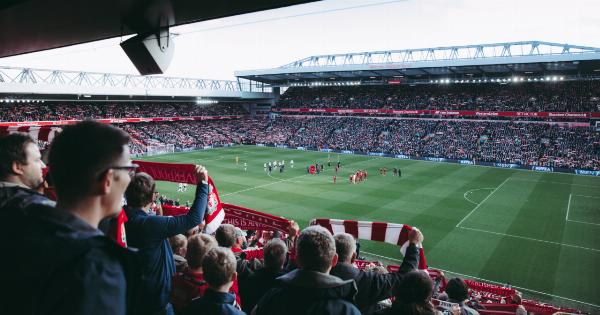The human experience often includes relationships with other people, whether in romantic, familial, or friendly contexts. While these relationships can bring joy and fulfillment, they can also be fraught with difficulty and heartache.
In particular, the role of the observer in a romantic relationship can lead to misunderstandings and even misappropriation of the lover. This article will explore the dynamics of the observer and lover roles in relationships, and the potential consequences of misappropriation.
The Role of the Observer
In any relationship, there is always an observer. This can be a friend, family member, or simply an outsider who observes the actions and words of the couple.
While an observer can offer valuable insight and feedback, they can also contribute to misunderstandings and misinterpretations. This is particularly true in romantic relationships, where the actions and words of both partners can be closely scrutinized by others.
The observer may have their own biases and beliefs that influence their interpretation of the relationship.
For example, if an observer believes that a woman should be subservient to her partner, they may view any expression of independence or assertiveness as a sign of disrespect or dissatisfaction. This can lead to misinterpretation of the woman’s feelings, and a misappropriation of her actions as evidence of a problem in the relationship.
The Role of the Lover
The lover in a relationship is typically the person most intimately involved. They experience the emotions, thoughts, and actions of their partner in a way that cannot be replicated by an observer.
While a lover may seek advice and feedback from others, they ultimately hold the most accurate understanding of their own feelings and desires.
However, the lover may also be influenced by outside voices. If the observer is persistent in their misinterpretation of the relationship, the lover may begin to feel pressure to align with that interpretation.
This can lead to a misappropriation of the lover’s actions and intentions, as they attempt to fit into the observer’s expectations.
The Consequences of Misappropriation
Misappropriation in a relationship can cause significant damage. It can lead to misunderstandings, miscommunication, and a lack of trust between partners.
The observer’s misinterpretation of the lover’s actions may cause the lover to feel invalidated, unheard, and unsupported. In turn, the lover may begin to withdraw emotionally, particularly if they feel that they are unable to satisfy the observer’s expectations.
Misappropriation can also lead to a self-fulfilling prophecy. If the observer is convinced that the relationship is unhealthy or doomed to fail, they may unconsciously contribute to that outcome by interacting with the lover in a negative way.
This may cause the lover to become defensive or to withdraw, ultimately leading to a deterioration of the relationship.
How to Address Misappropriation
If you feel that your actions and intentions are being misappropriated by an observer, it’s important to address the issue directly. Start by discussing your feelings and perspectives with your partner.
Be clear about your intentions and desires in the relationship, and ask your partner for their input and feedback. Avoid becoming defensive or confrontational, and instead focus on finding common ground and understanding.
You may also want to set boundaries with the observer, particularly if their misinterpretation is causing significant harm to your relationship.
Be clear about what you are and are not comfortable discussing with them, and consider limiting their access to information about your relationship. This may require difficult conversations and some uncomfortable confrontations, but ultimately it can help to protect your relationship from external forces.
The Importance of Self-Reflection
Finally, it’s important to engage in self-reflection and self-care as you navigate the challenges of a misappropriated relationship.
This may involve seeking professional help, such as therapy or counseling, to work through your feelings and identify healthy coping mechanisms. It may also involve making difficult decisions about the future of your relationship, particularly if you feel that misappropriation is irreparably damaging your connection with your partner.
Remember, the observer’s misinterpretation does not define your relationship. You and your partner hold the most accurate understanding of your feelings and intentions, and it’s ultimately up to you to determine the path forward.


























